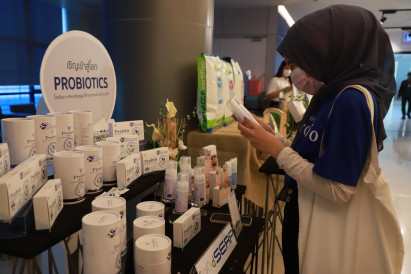
The National Science and Technology Development Agency (NSTDA) has launched a prototype of a biotech factory at Thailand Science Park in Pathum Thani.
Chukit Limpichamnong, director of the NSTDA, said on Wednesday the Biotec Bioprocessing Facility (BBF), as it is known, was set up in line with the agency’s policy of supporting the business sector’s demand for technology.
“When Thailand was chosen to host the Asia-Pacific Economic Cooperation (Apec) forum in 2022, it announced the BCG [Bio Economy, Circular Economy, and Green Economy] model would be the future of our economy,” he said.
Mr Chukit said the concepts that are key to the country’s sustainability are now prevalent in the international community.
Advancing these technologies would help promote economic development while maintaining concern for environmental and national sustainability.
Mr Chukit raised concern about the excessive use of petrochemicals, which people “all over the world are currently working to address, and to do that without sacrificing economic growth, we need technology to help.”
“The role of technology will evolve to aid in the efficient use of natural resources,” he said.
This demand to balance sustainability and the economy led to the development of biotechnology as a solution. Whoever advances this technology first will gain big advantages, he said.
“Thailand is one of the most biodiverse countries; however, it is a pity that we have to export these resources to other countries to process them at cheap prices,” he said.
Thailand must then import these processed chemicals and ingredients back from other nations at a high price to put in food, cosmetic products, and other goods, he said.
Mr Chukit said the NSTDA is attempting to use this abundant resource by arranging “many projects to use biotechnology for business and the public interest.”
The BBF can support research activities from upstream to downstream processing. Its core focuses are on fermented technologies from microbes such as yeast, fungi and bacteria, research into genetically modified microorganisms (GMO), and food and feed processing technology.
It also has experts in basic and applied microbiology to benefit the food and feed industries, as well as the agro-industry and bio-based industries. Apart from that, it provides consultancy services, technical training and partnerships with local and international institutions to make the country more competitive, he said.
“One of the most prominent features is the collaboration with the business sector in proximity with supporting the business sector in biotechnology research to increase public interest and global competitiveness, he said.

